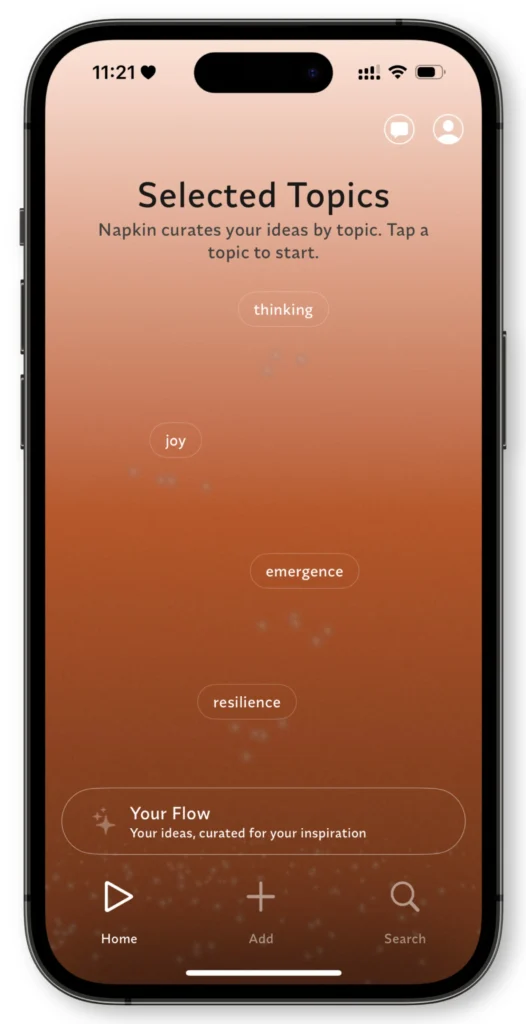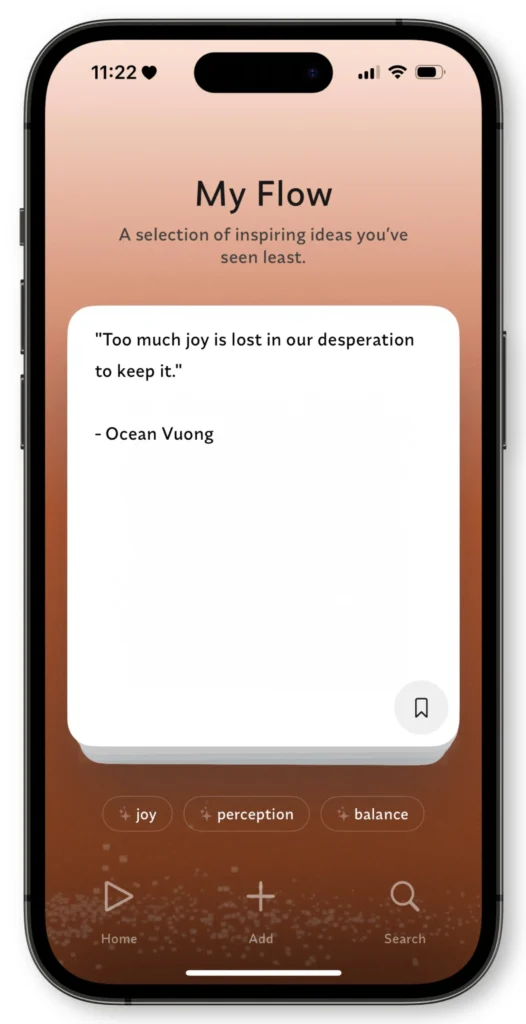Note-taking apps typically aim to make you more efficient and productive. A lot of those apps concentrate on quickly jotting down your thoughts, organizing them better, or a mix of both. Napkin (not to be confused with the Accel-backed startup of the same name) wants to stand out amid these apps by focusing on mindfulness. Think of it as a companion of sorts to your journaling.
Founders David Felsmann and Fabian Wittel, who previously worked in BMW’s group innovation wing, started developing the app in 2022. They first released a web prototype. But, at that time, the app was focusing on productivity and helping you outline ideas around specific topics. They noticed there was also a big chunk of users who used Napkin as a mindfulness tool to take some time and reflect on ideas that were valuable to them.

The company then shifted its focus to the mindfulness market when it started building its iOS app — the desktop app was maintained for existing users. The startup has positioned itself in the health and fitness category rather than productivity or utility because of its mindfulness approach.
“All notes are very different in nature. We are helping people capture ideas that change their state of mind. Like something that made you change your perspective or motivated you and you want to reflect on that later. These are the ideas that you collect with Napkin as a mindfulness habit,” Felsmann said.
Users can log their ideas, such as quotes from books, through the camera — those quotes are converted into text. They can also simply type these thoughts as well. Napkin curates some ideas for initial sessions that you can add to your library. The app uses AI to categorize different ideas with auto-generated tags. You can revisit these themes or tags at a later date from the home screen too.

Users can archive their ideas so that they stop showing up with the related flags. While the app can understand other languages like Spanish and German, currently, it is best suited for English.
Felsmann noted that a lot of people used the app first thing in the morning to self-reflect instead of opening social media. The co-founders noted that they have built the app around a so-called Sense of Coherence (SoC) model, which allows you to build a holistic mental model of the world and keep you grounded.
Napkin is available on the App Store with a fee of $6 per month or $50 per year. You can also get a seven-day trial to test out the app.
The company says that the app doesn’t want to disrupt user flow so they don’t send any nudges or notifications to users. “We don’t want to add more noise to users’ lives. We would love to be an application in the background that is not screaming for attention, but rather a quiet place of retention for them,” Felsmann said.
Napkin sees itself as a companion for people who journal rather than a replacement. In the future, the app could also have integrations with popular journal apps or Amazon Kindle so users can capture their ideas easily and use them for journaling.
The company hasn’t raised any institutional money but has gotten checks in the form of convertible loan agreements from believers and backers totaling roughly $150,000. Napkin doesn’t want to raise money and wants to reach sustainability with more than 10,000 subscribers. Currently, it has roughly 4,000 paid users. Once it hits the goal, the company will consider building integration features and apps for other platforms.
